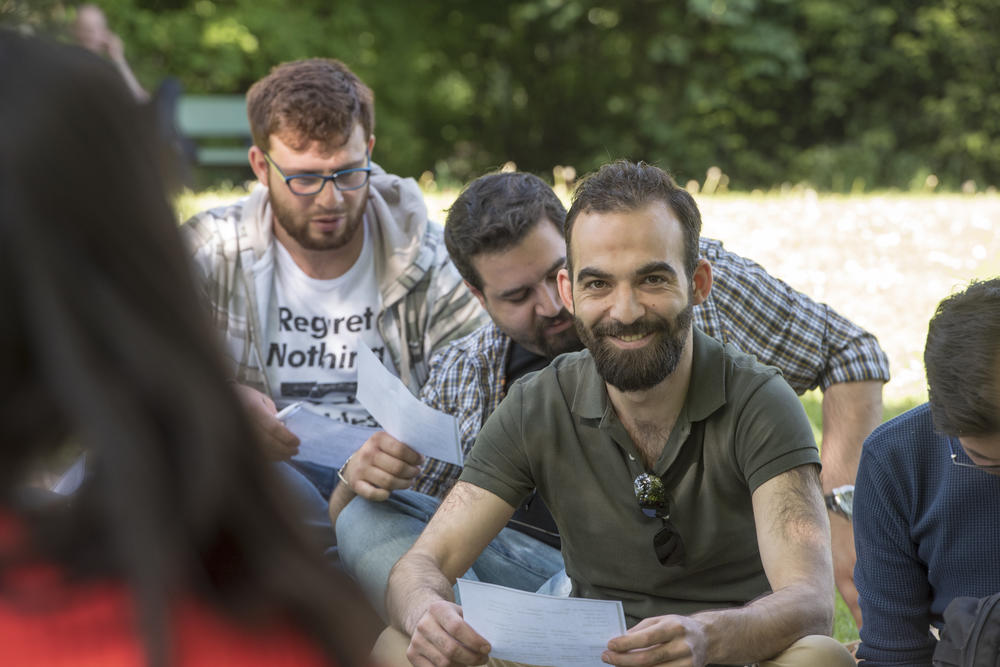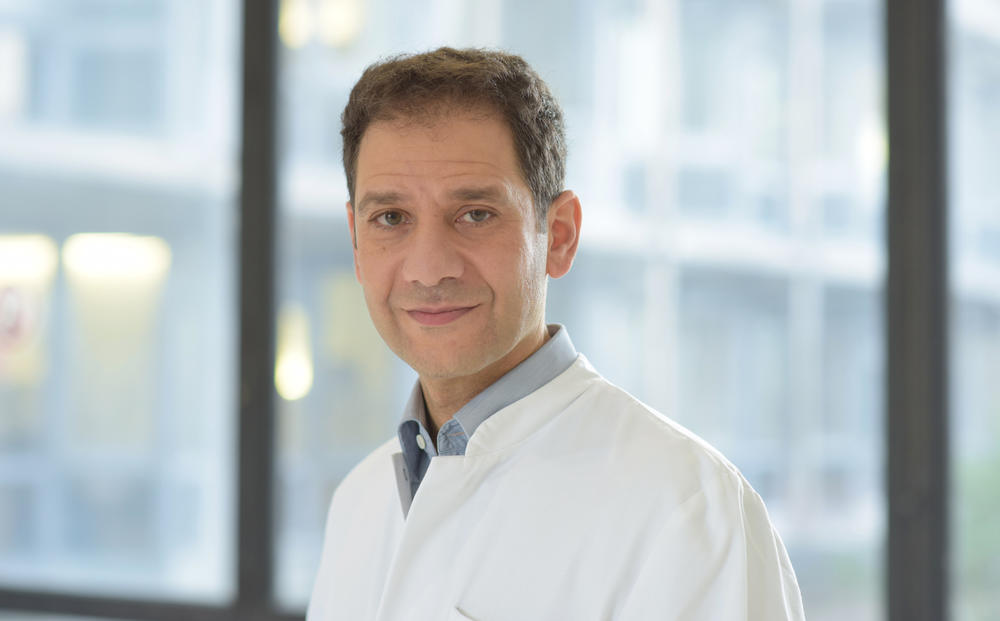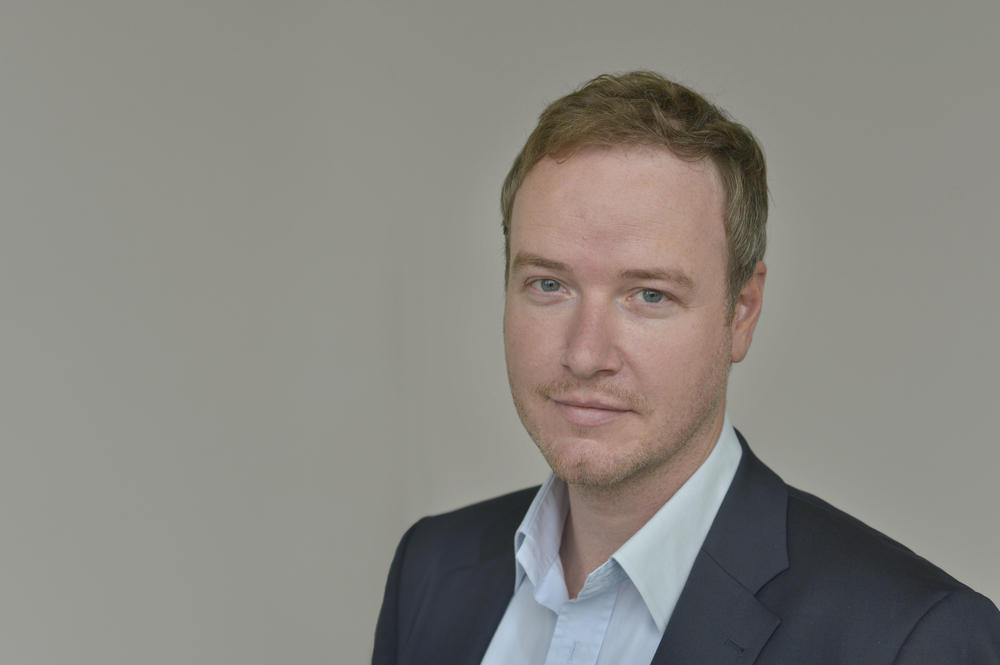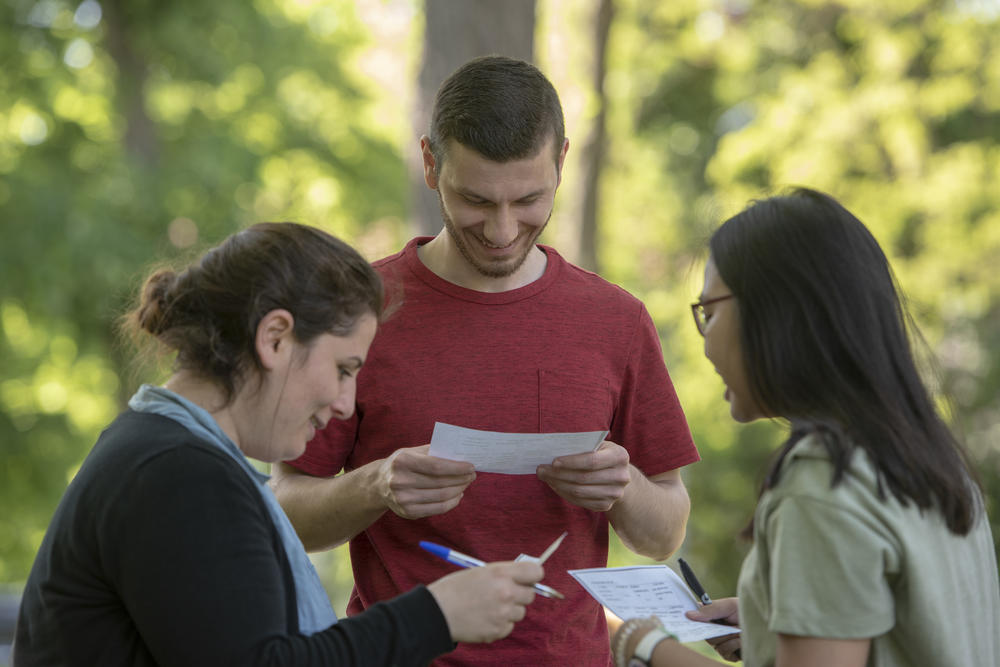“Integration is More than a Language Course and a Job”
The importance of values and feelings in integration: sociologists from Freie Universität, physicians and psychologists from Charité - Universitätsmedizin Berlin, and other cooperation partners are investigating immigration as an emotional process.
May 15, 2018
Emotions are an important part of integration. The AFFIN research project therefore investigates the emotional worlds of refugees as well as those who take them in.
Image Credit: Bernd Wannenmacher
Flight and migration are highly emotional issues to do with philanthropy or xenophobia. Feeling accepted or feeling lonely. Germany was already discussing feelings in 2015 when 14-year-old Reem Sahwil started to cry because of a statement made by Angela Merkel during a dialog; Merkel then tried to console her live on camera: was the Chancellor too “coldhearted” about the girl threatened with deportation?
Although emotional life is obviously central to what we call integration, there exist few substantiated findings on how people feel when they arrive and how they are received. The emotional processes of the absorbing society, the Germans and migrants who have been living in Germany for some time, have also not yet been systematically investigated. The view “the refugees are well off here” resonates with envy, and the statement “many are traumatized” is full of pity. However, Christian von Scheve, a professor of sociology at Freie Universität Berlin, says that scientific research is lacking for both claims.
“Settling into a new society is a complex process and can be emotionally distressing.”
The AFFIN research project aims to change this. Sociologists and psychiatrists, in close exchange with each other, took three years to examine how immigrants and Germans feel when they meet and which role these worlds of emotions play in whether integration is successful or not. The abbreviation AFFIN stands for “Affective and cultural dimensions of integration following forced migration and immigration.” In addition to the sociologists at Freie Universität and the Center for Neurology, Neurosurgery, and Psychiatry at Charité - Universitätsmedizin Berlin, it also includes the German Institute for Economic Research with its Socioeconomic Panel (SOEP) and the Institute for Sociology at Universität Göttingen.
Malek Bajbouj is a professor of psychiatry and affective neuroscience at Charité.
Image Credit: Wiebke Peitz
Convinced that integration does not work like a checklist – do an integration course, find a job, done – the scientists look into people’s minds and hearts. Their assumption is that emotions and values are equally as important, but these are not so easy to measure.
“Work and language are classical parameters for integration,” says Malek Bajbouj, a professor of psychiatry and affective neuroscience at Charité, who himself has Syrian parents. “But there are people who, according to these criteria, are very well integrated and still have an unhealthy high level of stress.” Settling into a new society is a complex process and can be very stressful. “For some, the worries and stress are so bad that they develop clinical syndromes.” Experiences made in forced migration can be traumatic, and isolation can be very stressful.
Christian von Scheve is a professor of sociology at Freie Universität Berlin.
Image Credit: Bernd Wannenmacher
However, having said this, Bajbouj does not want to allow the claim that most of the refugees accepted in Germany are traumatized to go unchallenged. He says, “The prevailing image is that everyone who comes from regions of civil war has a posttraumatic stress disorder and needs trauma therapy.” However, by comparing Syrian patients in Berlin with those from a clinic 50 kilometers from the Syrian-Jordan border, Bajbouj knows that “those who have made it to us are more resilient, less frequently, and much less traumatized. Those who are worst affected don’t get as far as Germany, may not even make it across the Syrian border.”
“The special thing about AFFIN is that we systematically combine micro and macro levels.”
In the AFFIN hypothesis, the social construct “the refugees” is used as sparingly as “the Germans.” The scientists work with several cross-comparisons. They compare Syrian refugees in different host countries, and immigrants in Germany from different countries and cultures, for example, Afghan with Vietnamese groups. They also differentiate between the Germans, for example, according to towns with little or a lot of refugee contact.
“The special thing about this is that we systematically link the micro and macro levels,” says von Scheve, the network coordinator who meets with Bajbouj and other researchers once a month. The sociologists examine the large groups from a bird’s eye view, while the psychiatrists take a closer look at the individual case.
Personal contact plays an important role in integration processes. The Welcome to Freie Universität Berlin Buddy Program brings together refugees and Germans as well as immigrants who have been living in Germany for some time already.
Image Credit: Bernd Wannenmacher
Surveys are a classic instrument for both disciplines, but the interdisciplinary project places special demands on the interviews and surveys with which the values and feelings should be empirically substantiated. A survey among 4,500 refugees regularly conducted by the SOEP in cooperation with the German Federal Office for Migration and Refugees (BAMF) and the Institute for Employment Research (IAB), as well as with the help of experts in psychiatry, has been specifically expanded to include questions that allow conclusions to be drawn about the individual burden and stress level of those surveyed. “We are now evaluating this for the first time for Germany,” explains Bajbouj. The researchers from the various disciplines will also be working closely together for upcoming interviews and interview series. “An interview for the field of sociology naturally works differently from an interview conducted by psychiatrists,” says von Scheve. This is taken into account in the interviewers’ training courses in the same way as the participants first agree on terms and definitions. In addition, many refugees have been politically persecuted and are therefore very cautious. Malek Bajbouj says, “If the interpreters have an accent typical of Assad and his region, no Syrian is going to pour his heart out. We must also be sensitized to this.”
After three years of interviews and cross-comparisons, the findings are intended to contribute to better integration in the future. The German Federal Ministry of Education and Research is funding AFFIN research with around 825,000 euros. “Of course, we don’t want to jump ahead,” says Bajbouj, “but if it turns out that the refugees are not so different from the average German, then that would be a welcome antidote against generalized or populist statements.”




